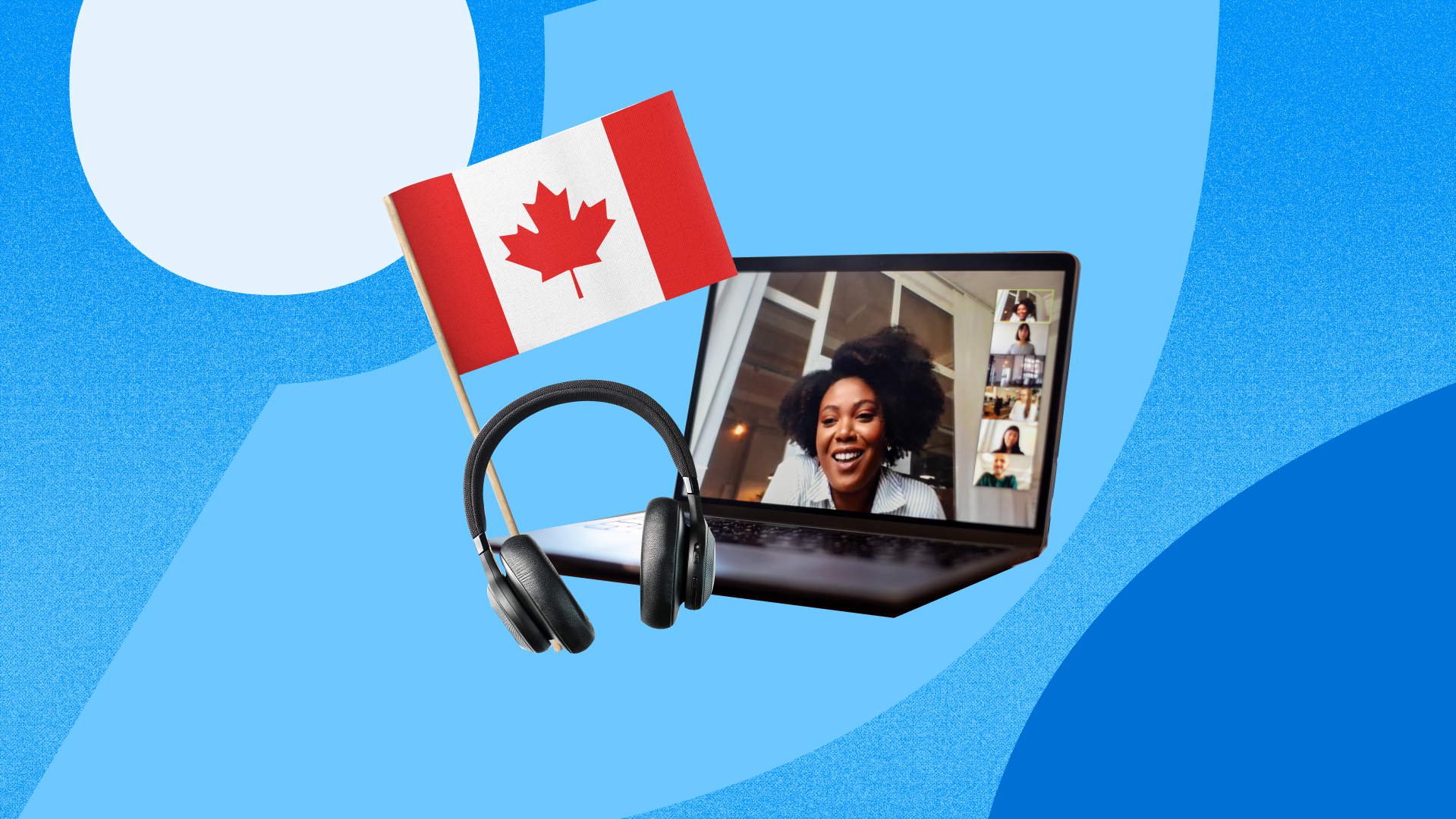For companies with local resources like an entity or HR team, running international global payroll might mean partnering with a global payroll provider that provides assistance with making international payments, administering benefits, tracking PTO and vacation days, tax filings, and other payroll processes.
For smaller businesses without a local entity or HR team, managing international payroll for employees abroad can be challenging. Justworks’ global EOR is the perfect solution for small businesses looking to hire internationally, often for the first time. With an EOR solution, small businesses can manage international payroll and benefits, as well as HR processes, which often includes services such as onboarding and offboarding, work visas and permit sponsorships, equipment distribution, international background checks, and more.
Not sure where to get started with international global payroll? Read on to learn more.
What is International Global Payroll? How does it work?
International global payroll, sometimes called international payroll processing, is the process of making compliant payments to employees based in more than one country or location, usually through one or more platforms.
When employers expand to a new country, business leaders might be able to add another country to their current payroll provider, or they might need to invest in a better platform or solution altogether.
You have two options to consider for payroll management, either centralized or decentralized. If you run international global payroll from one platform, then it’s considered centralized. If you run payroll globally from multiple platforms, then your solution is decentralized.
What does International Global Payroll include?
International global payroll includes managing cross-border payments to employees, global employment/HR, and payroll & benefits administrations.
Most international global payroll platforms include the following:
Built-in compliance tools for tax filings, time off tracking, and other HR processes
Dashboard to manage full-time employees and/or contractors in different countries
If you’re working with an EOR, the platform might also include other specific features as well, such as customizable employment contracts.
International Global Payroll provider types
When choosing an international global payroll provider, small businesses can choose between two broad categories: Partner/Vendor-based and entity-owned/direct.
Partner/Vendor-based. With the partner/vendor model, the international global payroll provider outsources much of the work to localized third-parties. While this may increase coverage for the payroll provider, the outsourcing can lead to issues and delays with the third-party vendors.
Entity-owned/direct. When a payroll provider offers direct employment and owns entities (which is the case with an EOR), the number of middlemen is reduced. This allows your payroll provider to easily offer seamless service, with fewer changes for delayed payments and other issues.
4 approaches to running International Global Payroll
Many HR leaders believe that PEO and Global EOR are interchangeable with global payroll, but that’s not necessarily the case. Generally, international payroll is one of the services offered by a PEO or Global EOR, however there are clear differences.
In-house payroll
If your company has a substantial presence in the foreign country where you’re hiring workers (e.g., you have a local bank account, an entity, registrations with the appropriate tax authorities, and an in-house payroll/HR team with bandwidth), you can pay for a professional payroll software subscription.
With payroll software, you will have features that automate manual tasks, such as generating pay stubs and calculating time off. Keep in mind that you will still need to hire in-house HR members to use the software and manage payroll.
Global payroll provider
Partnering with a global payroll provider tends to be the cheapest option, since you will still need to manage your own HR processes in the countries where you’re operating. Starting costs tend to be lower, but you will need to pay for establishing and maintaining the entity, building an internal HR team, legal support, and account support.
Working with a global payroll provider can eliminate the need to hire in-house HR specialists while also giving you access to local experts.
PEO provider
By working with a PEO, for instance, you enter into a co-employment relationship with the PEO. A PEO can help cover gaps in your HR team. You will still need to have an entity in-country to work with a PEO.
This global payroll solution will likely cost more than working with a payroll provider, since you will receive additional HR support.
Global EOR provider
If you don’t have any local presence – no local entity, no HR team – and you want to get up and running in a new country as quickly as possible, then an EOR is your best option. Partnering with an EOR typically costs more than working with a payroll provider, but these solutions handle additional areas, such as HR, local compliance, accounting, work visa sponsorship, employee relocation, and more. The EOR is responsible for local employment and supporting you to maintain compliance.
While this option might be more expensive than working with a payroll provider or PEO, it can save months (or years) of time, as well as reduce overall operating costs by hundreds of thousands of dollars.
International Global Payroll challenges
Localization. Each country (and each region, for that matter) has different rules, customs, and regulations that employers need to navigate surrounding payroll. To successfully manage international payroll, you will need to ensure you’re offering appropriate benefits, paying workers at an acceptable cadence, tracking employee hours, and making all relevant payments in the local currency. You will also need to determine what pay frequency makes the most sense (weekly, bi-weekly, monthly) in each country.
Compliance. As you expand abroad, you will need legal experts to ensure that you’re structuring your new team compliantly. With an EOR, for instance, we offer specific compliance support to ensure you’re running payroll across borders compliantly with all local, state, and federal regulations.
Tax laws. Taxes become more complicated when you hire across borders. In addition to navigating local payroll taxes, you will need to make sure you’re avoiding double taxation.
Foreign transaction fees. Paying workers in their local currency can be complicated and expensive. Sending money across borders can also be expensive, sometimes incurring fees as high as 15% or 20%. Review and ask prospective global payroll providers ahead of time what fees they charge, as well as how they manage exchange rates.
Bank fees. Banks can also charge hefty fees for international payments. If you have a bank account setup, connect with your payroll provider and bank to see what issues might arise. If you don’t have a bank or a local entity, then you can partner with an EOR like Justworks and skip the process of opening a bank account abroad entirely. A SWIFT transfer, for instance, can cost upwards to $50 for one payment.
Benefits management. Health insurance, disability, retirement, unemployment insurance, workers’ compensation are just the beginning. When managing international payroll administration, you will need to take into account all sorts of benefits that your workforce will expect, from WFH reimbursements to grocery allowances, depending on the country.
On-the-ground support. As you begin expanding abroad, you will need to find support from local legal experts and accountants to ensure you’re remaining compliant. However, finding local experts when you’re far away can be challenging. An EOR provides you with on-the-ground expertise and guidance so you don’t have to spend extra time sourcing experts or extra money paying them.
Data protection. Each country has data privacy laws you must comply with to protect individuals’ personal information. For example, if you’re hiring workers in Europe, you will need to remain in compliance with the General Data Protection Regulation standards which might require data encryption and the execution of additional data protection agreements.
HR expansion. Companies that hire in new countries need to either build out their in-house HR/payroll team or partner with a PEO/EOR for support with HR. While each path has its own pros and cons, companies that are looking to expand quickly and keep their international teams relatively small (e.g., fewer than 100 people in one country) can benefit from outsourcing HR.
HR/payroll team or partner with a PEO/EOR for support with HR. While each path has its own pros and cons, small businesses that are looking to expand quickly and keep their international teams relatively small (e.g., fewer than 100 people in one country) can benefit from outsourcing HR.
How to choose an International Global Payroll provider
When you’re deciding who to partner with as your international payroll provider, ask yourself the following questions:
Does the provider fully offer coverage in the countries or market where I plan to pay workers?
Can I pay employees?
Do I need to set up an entity? (If you don’t have an entity, then working with an EOR might be your best bet)
Will the payroll provider handle compliance, tax filings, social security contributions, deductions and other legal processes?
Does the payroll provider have a platform where our team can manage PTO, sick leave, reimbursements, and other common HR processes?
Do I just need help with payroll or benefits, or do we require additional support with immigration, local laws, HR, registering workers with government bodies, and local compliance? (If you require support with things like sponsoring work visas, then you’ll need to work with an EOR)
Will sending payments via an international money transfer be sufficient?
International global payroll costs
If you have an entity, then running payroll internationally is usually more affordable. In general, providers charge a base rate (usually starting at around $35), plus an additional charge (usually around $8-$30) per employee. However, you will need to pay to establish and maintain a local entity and HR team.
If you’re working with an EOR, pricing usually starts at $199-$599 per month per employee.
International Global Payroll vs. Multi-country Payroll
Multi-country payroll means managing payments for full-time employees in multiple countries from one select platform. If you’re paying employees in multiple countries from one dashboard, then you’re managing both multi-country payroll and global payroll.
How Justworks Provides International EOR Services for Small Business
Through Justworks, you can now expand the boundaries of your talent search without setting up a local entity. Focus on building your team, and leave worrying about the nitty-gritty of HR and international compliance to us.
Our team of local employment experts will support your small business to remain compliant while expanding internationally. We handle the bulk of the administrative side of things so you can focus on what matters: managing your team.
Learn more about how you can expand your international business through Justworks, and get started today.
Learn more with Justworks’ Resources
Scale your business and build your team — no matter which way it grows. Access the tools, perks, and resources to help you stay compliant and grow in all 50 states.







